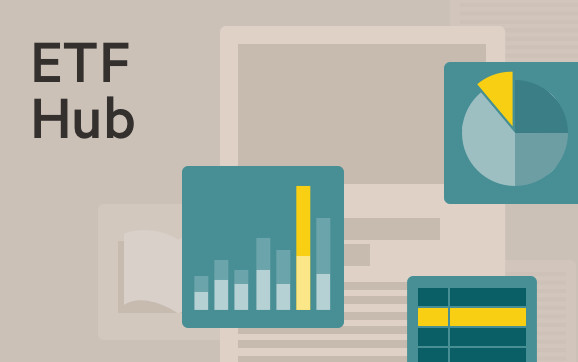Asia’s first Saudi Arabia ETF lists on Hong Kong stock exchange

Simply sign up to the Exchange traded funds myFT Digest -- delivered directly to your inbox.
Latest news on ETFs
Visit our ETF Hub to find out more and to explore our in-depth data and comparison tools
Asia’s first exchange traded fund investing solely in Saudi Arabia’s equities market has listed on the Hong Kong exchange attracting $1bn in initial investment, marking one of the territory’s largest ever debuts.
The CSOP Saudi Arabia ETF was launched on the back of strong government support, after more than a year of high-level efforts by senior Hong Kong officials attempting to woo investment from the Middle East.
The ETF invests in a portfolio correlated to the FTSE Saudi Arabia Index, which has a market capitalisation of more than $270bn and aims to align with the Saudi Vision 2030 project, Crown Prince Mohammed bin Salman’s road map for economic diversification and global engagement.
Its top holdings include Saudi Aramco, the state-owned petroleum and natural gas company, and Al Rajhi Banking & Investment, the country’s largest bank.

This article was previously published by Ignites Asia, a title owned by the FT Group.
The Public Investment Fund, Saudi Arabia’s $700bn sovereign wealth fund, has been named as an anchor investor in the fund. CSOP Asset Management, which manages the ETF, declined to say how much of the $1bn initial fundraising came from PIF but called the wealth fund “the most important cornerstone investor” for the product.
CSOP AM, a Hong Kong subsidiary of China Southern Fund Management, is also considering expanding the potential sales reach of the fund by making it available to retail investors in mainland China via ETF cross-listing.
The launch of the Saudi Arabian ETF strategy comes amid a significant pivot by Hong Kong authorities to build closer political ties and attract capital investment from wealthy Middle Eastern institutional investors and family offices, and encourage businesses including fund firms to establish more links with the region.
In an unusual display of support for the launch of a single ETF product, the listing ceremony attracted not only Paul Chan, Hong Kong’s financial secretary, but also the chief executives of the Hong Kong Securities and Futures Commission and the Hong Kong Exchange and Clearing, the deputy chief executive of Hong Kong’s de facto central bank and the head of HSBC in Hong Kong.
At the launch of the Hong Kong chapter of the Saudi Arabia-China Entrepreneurs Association in July this year, John Lee, Hong Kong’s chief executive, said he wanted to make strengthening relations with Saudi Arabia, and the Middle East in general, “a priority”.
Howard Lee, deputy chief executive of Hong Kong Monetary Authority, has visited Saudi Arabia on four occasions in the past 14 months.
Christina Choi, executive director of Hong Kong’s SFC, who also attended the listing ceremony, said the regulator was working closely with Saudi Arabia’s Capital Market Authority to bring some Hong Kong fund products for sale in the Saudi Arabian market.
“I hope PIF could also help Hong Kong asset managers to maybe bring more products to list on the [Saudi Arabian] market,” she added.
The Shenzhen Stock Exchange, one of the two major bourses in mainland China, is currently in negotiations with the Saudi Tadawul Group, which manages the Saudi Exchange, to bring its ETF Connect scheme to the market.
China’s two major stock exchanges in Shenzhen and Shanghai are both currently connected to the Hong Kong exchange via the ETF Connect scheme launched last year to allow investors to trade eligible ETFs listed on the other exchanges. ETFs listed in the three exchanges can also be cross-listed between markets in Hong Kong and China.
Chinese and Hong Kong fund companies have been turning their focus towards big institutional investors in the Middle East to seek targets for their China-focused investment strategies, with senior fund professionals flying to the region more regularly and some even considering setting up an office there.
Fund executives have told Ignites Asia that in targeting Middle East money they find it hard to get to know the investors, and the ones they do build relationships with prefer to invest in the primary market in industries such as technology rather than in funds.
Latest news on ETFs

Visit the ETF Hub to find out more and to explore our in-depth data and comparison tools helping you to understand everything from performance to ESG ratings
There are also question marks about how much demand there really is for investing in the Saudi Arabian stock market.
Saudi Arabia’s nominal gross domestic product is just the 17th largest in the world, with an economy similar in size to Turkey or the Netherlands, and most single-country ETFs listed in Hong Kong that do not invest in China have failed to resonate with investors.
But the FTSE Saudi Arabia Index has returned 45.3 per cent in the past three years, far outperforming Hong Kong’s Hang Seng index and China’s major CSI 300 Index over the same period.
Tony Wong, head of Asia Pacific sales at CSOP AM, said at the listing ceremony that half the initial assets raised in the ETF came from Hong Kong institutions and half from overseas, but he believed the liquidity of the product in the secondary market would slowly increase over time.
*Ignites Asia is a news service published by FT Specialist for professionals working in the asset management industry. Trials and subscriptions are available at ignitesasia.com.
Comments